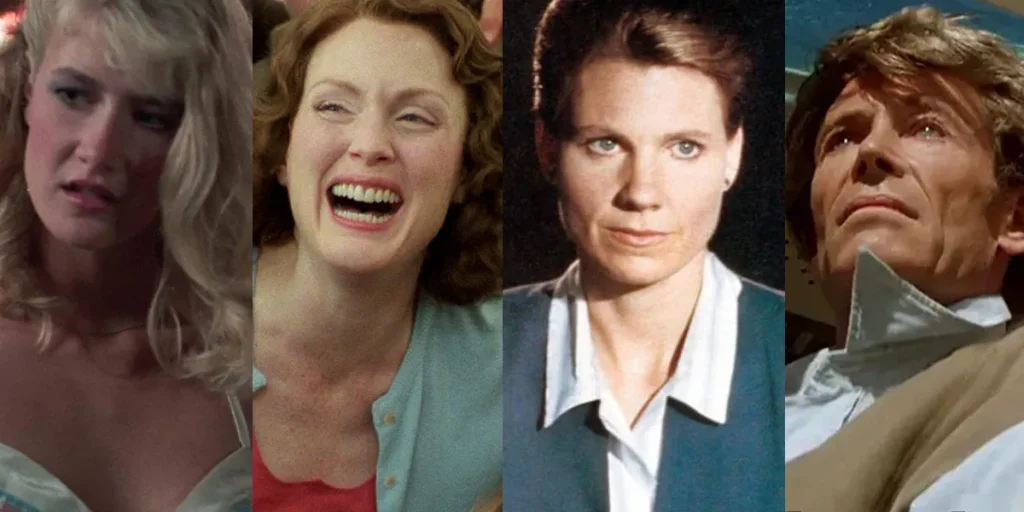You missed them the first time. Now’s your chance to catch up on the 10 best movies you’ve never seen, all worth your time and attention.
These best movies you’ve never seen aren’t just forgotten titles; they’re hidden gems and overlooked masterpieces that deserved better. While algorithms push the same blockbusters and Oscar bait, these underseen films offer rewards mainstream cinema rarely gives. They’re not arthouse experiments or obscure foreign imports; they’re emotionally rich, accessible stories that slipped through the cracks despite standout performances and sharp direction. From clever thrillers to honest family dramas, these are the movies that stay with you, and prove that greatness doesn’t always come with hype.
10. The Stunt Man (1980)
Director: Richard Rush
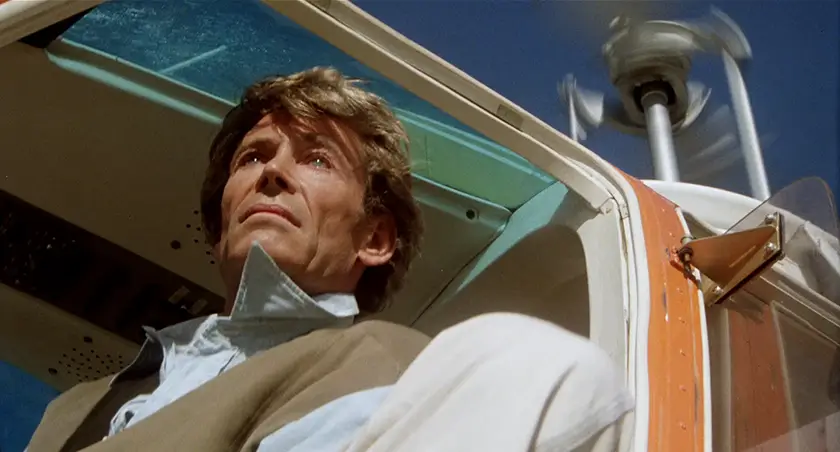
Peter O’Toole delivers one of his most unhinged and brilliant performances as Eli Cross, a megalomaniacal film director who treats human lives like props in his grand cinematic vision. When fugitive Cameron (Steve Railsback) accidentally causes the death of a movie stuntman and finds himself recruited to replace the dead man, Cross uses him both on-screen and off in an elaborate World War I epic where the line between movie reality and actual physical harm becomes dangerously blurred. O’Toole’s nomination for Best Actor was richly deserved; his Cross is equal parts visionary artist and sociopathic puppet master, charming Cameron (and audiences) into a world where every dramatic moment might be just another take, and every moment of safety might be setting up the next death-defying sequence.
The film operates as both a satire of Hollywood excess and a genuine thriller, keeping viewers as disoriented as its protagonist about what’s real and what’s staged. Richard Rush’s direction creates a funhouse mirror effect that predates Being John Malkovich and Adaptation in its meta-cinematic games; yet, The Stunt Man took nearly a decade to reach screens: seven years for financing and three for distribution. Rush earned a Best Director nomination, but this would be his penultimate film; amazingly, his only subsequent feature was 1994’s notorious Color of Night, which was released fourteen years later. The Stunt Man deserved the same cult following as other reality-bending works, but its 1980 release couldn’t find an audience ready for its hallucinogenic blend of dark comedy and existential terror.
9. Indian Summer (1993)
Director: Mike Binder
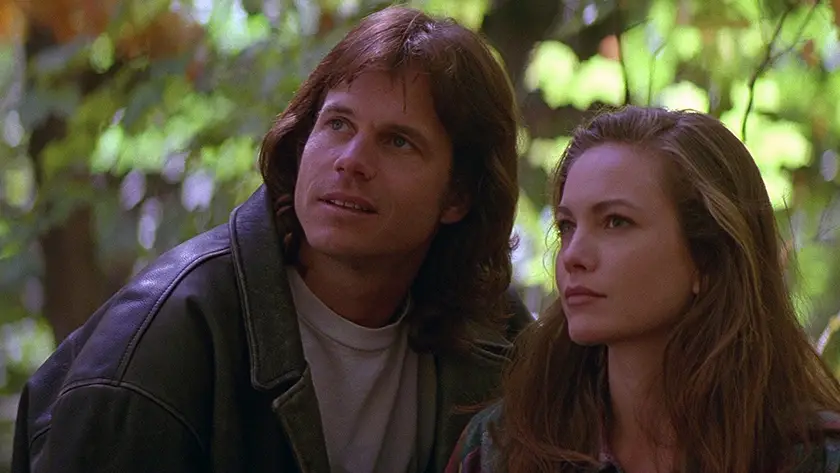
The closing of Camp Tamakwa becomes both ending and beginning in Mike Binder’s gentle meditation on nostalgia, as retiring director “Unca” Lou (Alan Arkin, Little Miss Sunshine) invites former campers back for one final weekend. Among the returning adults are successful businessman Jamie (Kevin Pollak, The Usual Suspects), eternal bachelor Brad (Matt Craven, A Few Good Men), free spirit Jennifer (Elizabeth Perkins, Big), and Beth (Diane Lane, Unfaithful), all of whom confront how their adult lives measure up against their childhood dreams. Arkin leads the ensemble with sincerity as a man who dedicated his life to creating magical summers for generations of children. It’s a performance that gains poignancy knowing the character was named after Lou Handler, one of the real camp’s founders.
Binder shot at the actual Camp Tamakwa in Ontario’s Algonquin Park, where he’d spent ten summers as a child, and the authenticity shows in every frame. The film avoids reunion movie clichés of manufactured drama, instead finding genuine emotion in smaller moments—late-night kitchen raids, shared stories, and quiet realizations about how people change. Even Sam Raimi appears in a supporting role, a reminder of the film’s insider appeal. In a decade obsessed with high-concept comedies, this thoughtful character study was too subtle for mainstream success (it was initially dismissed as “The Big Chill goes to camp”), but it rewards viewers with an emotional core that feels real rather than calculated.
8. Smooth Talk (1985)
Director: Joyce Chopra
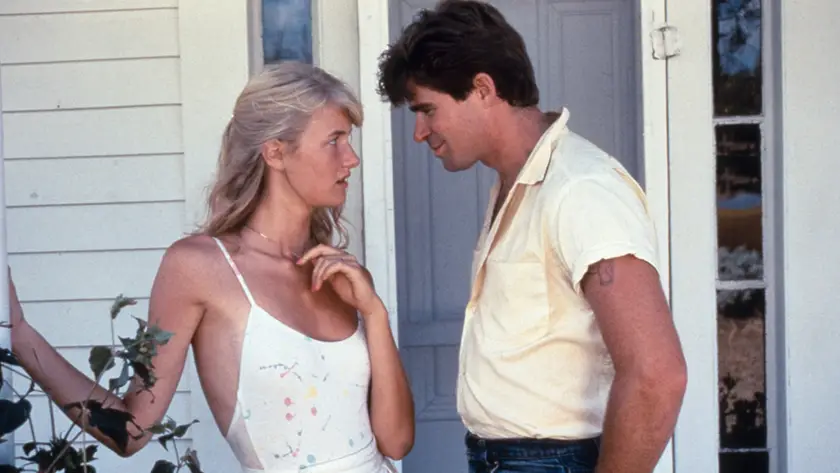
Laura Dern was only eighteen when she delivered this breakthrough performance that captures every contradictory impulse of adolescence, playing fifteen-year-old Connie Wyatt (Dern, Blue Velvet) as she spends summer afternoons at malls and drive-ins, testing boundaries while clashing with her disapproving mother (Mary Kay Place, The Big Chill). Dern’s work here presaged her later collaborations with David Lynch, showcasing the same fearless commitment to confronting uncomfortable truths about the female experience. When mysterious stranger Arnold Friend (Treat Williams, Hair) arrives at her house one afternoon, what begins as flirtation reveals itself as predatory menace, forcing Connie into a confrontation with adult malevolence that ends her childhood forever.
Based on Joyce Carol Oates’s disturbing short story “Where Are You Going, Where Have You Been?” and Chopra’s documentary Girls at 12, the film treats sexual danger with devastating precision that was uncommon for its era. Williams creates one of cinema’s most chilling predators in Arnold Friend, weaponizing charm and psychological manipulation rather than physical force, while Dern’s final scene — a wordless journey of realization and loss — ranks among the most potent moments in 1980s cinema. The film emerged during the peak of the Sixteen Candles era, making its unflinching examination of sexual trauma too uncomfortable for broad audiences, although it won the Grand Jury Prize at the Sundance Film Festival. Smooth Talk succeeds because it refuses to minimize or sensationalize the moment when childhood safety collides with adult malice, treating the teenage experience with the seriousness it deserves.
7. Men Don’t Leave (1990)
Director: Paul Brickman
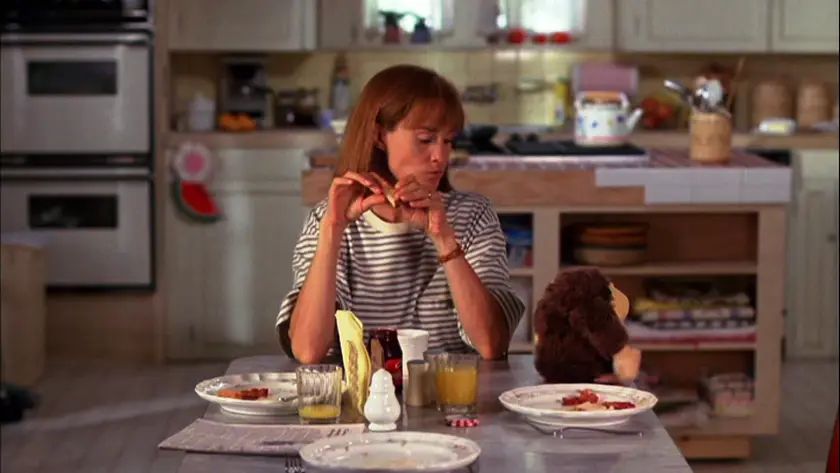
Jessica Lange is incredible in this devastating family drama, giving a performance that honestly depicts breakdown and recovery without melodrama. Lange’s full command of her strengths is on display as she plays Beth Macauley (Lange, Blue Sky), who discovers that her husband’s death has left the family financially ruined despite their middle-class appearance. When she and her sons—teenage Chris (Chris O’Donnell, Scent of a Woman) and eight-year-old Matt (Charlie Korsmo, Hook)—are forced from their suburban Baltimore home to a cramped apartment, Beth’s descent into depression becomes a visceral reality, particularly in scenes where her overwhelming grief makes caring for her children impossible. Lange’s work here ranks among her best, showing a woman learning that surviving tragedy requires complete reinvention.
Seven years after writing and directing Risky Business, Paul Brickman finds humor and warmth without minimizing real struggles. Adapting the French film La Vie Continue with Barbara Benedek, he creates something distinctly American in its portrait of economic hardship. O’Donnell and Korsmo make believable siblings dealing with loss in different ways—Chris through angry rebellion, and Matt through fantasy retreat. The film portrays recovery as a gradual, imperfect process rather than a dramatic transformation. Shot in 1988 but delayed until 1990 due to production issues, it features strong supporting work from Arliss Howard and Joan Cusack. It arrived at a time when family dramas were either overly sentimental or grimly realistic, making its balance too nuanced for commercial success. O’Donnell, co-star Kathy Bates, producer Jon Avnet, and composer Thomas Newman would reunite the following year for Fried Green Tomatoes. Still, this more challenging predecessor deserved the same audience attention.
6. Series 7: The Contenders (2001)
Director: Daniel Minahan
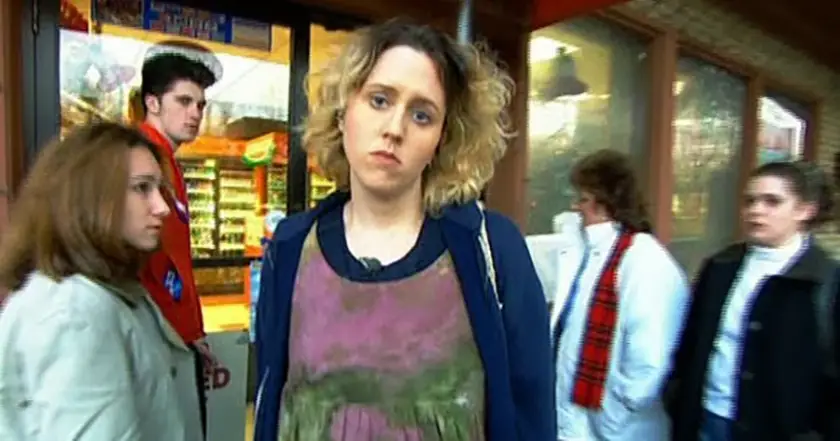
Daniel Minahan’s satirical nightmare presents itself as found footage from a twisted reality show where ordinary citizens are selected by lottery and forced to hunt each other until only one survives, broadcast live to a bloodthirsty audience. Pregnant Dawn Lagarto (Brooke Smith, The Silence of the Lambs), defending champion after two previous cycles, must face five new contestants in her Connecticut hometown, including her dying high school boyfriend, Jeffrey (Glenn Fitzgerald, The Ice Storm). Minahan wrote the role specifically for Smith after seeing her in an off-Broadway production, and her fearless, go-for-broke performance creates a character who’s simultaneously a victim and a willing participant—someone who has learned to survive by embracing the violence that once horrified her.
Originally pitched as a TV series in 1998, the concept predated both Survivor and Big Brother, making its 2001 release unnervingly prescient about how far audiences would go for entertainment—three years before “The Hunger Games” novel. Shot in just 21 days with influences from Videodrome, Westworld, and Rollerball, the film presents its premise with complete documentary sincerity, using commercial breaks and behind-the-scenes commentary to normalize the unthinkable until viewers find themselves genuinely invested in who wins. Series 7 disappeared quickly from theaters, possibly because its dark vision of American entertainment culture hit too close to home. Still, it stands as one of the most effective media satires ever made, predicting our current reality TV obsession with disturbing accuracy.
5. The Prize Winner of Defiance, Ohio (2005)
Director: Jane Anderson
Julianne Moore (Far from Heaven) creates a delicate but complex portrait of Evelyn Ryan, a 1950s mother who supports her family of twelve not through traditional employment, but by entering and winning jingle-writing contests that proliferated during early television advertising. While alcoholic husband Kelly (Woody Harrelson, Natural Born Killers) drinks away paychecks and rages at his inability to provide, Evelyn uses wit and wordplay to win everything from cars to cash prizes, turning corporate marketing into salvation. Moore captures both Evelyn’s genuine enthusiasm for language and her underlying awareness that these contests aren’t games—they’re a lifeline, a desperate form of creativity born from economic necessity.
Based on Terry Ryan’s memoir about her remarkable mother, the film celebrates unsung female resourcefulness during an era when women had few economic options. Harrelson avoids easy villainization, portraying a man destroyed by his inability to fulfill his perceived role as a provider. At the same time, Anderson’s feature debut—after an Emmy win for The Positively True Adventures of the Alleged Texas Cheerleader-Murdering Mom—finds heroism in ordinary determination. Bright production design and buoyant pacing keep it engaging, even as the stakes remain quietly harrowing. However, its quiet storytelling couldn’t compete with louder films for attention. Featuring Laura Dern in a memorable supporting role, The Prize Winner of Defiance, Ohio succeeds by finding dignity in one woman’s refusal to let circumstances defeat her family, and by reimagining what meaningful work looks like.
4. Late for Dinner (1991)
Director: W.D. Richter
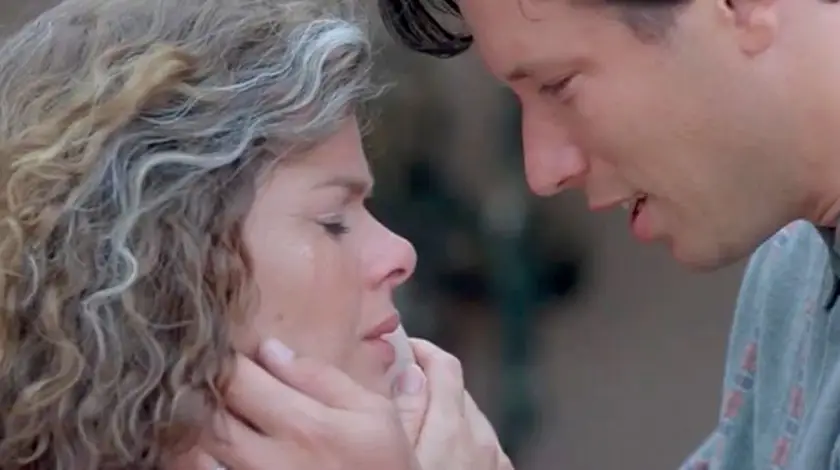
W.D. Richter’s sci-fi premise may have emerged from a casual conversation about cryonics, but the resulting film—written by Mark Andrus—treats its fantastic concept with complete emotional seriousness. When Willie Husband (Brian Wimmer, China Beach) and Frank Lovegren (Peter Berg, Chicago Hope) flee 1962 Santa Fe after a confrontation with corrupt sheriff Bob Freeman (Bo Hopkins, Midnight Express), they seek help from a mysterious doctor who promises to hide them safely. Awakening twenty-nine years later, they discover they’ve been cryogenically frozen—thrust into a 1991 world where Willie’s wife Joy (Marcia Gay Harden, Mystic River) has remarried and their young daughter is now an adult with her own family. The film’s lasting power comes from refusing to treat time travel as adventure or comedy, instead focusing on the genuine devastation of characters who’ve lost three decades.
Initially set in 1957 but later moved to 1962 to better reflect America’s growing cynicism, the film works as both a high-concept drama and a meditation on the pain of lost time. Wimmer delivers heartfelt work as Willie, struggling to reconnect with a wife who’s moved on, while Berg provides calibrated comic relief as the more adaptable Frank. Harden creates a complex Joy, torn between loyalty to her first love and commitment to the life she’s built in his absence. The film deserved to find the audience that would later embrace similar romantic dramas, but its 1991 release fell between genres—too thoughtful for action fans, too sci-fi for romantics. Late for Dinner succeeds because it treats its premise as a starting point rather than a gimmick, exploring how relationships survive impossible circumstances.
3. A Home of Our Own (1993)
Director: Tony Bill
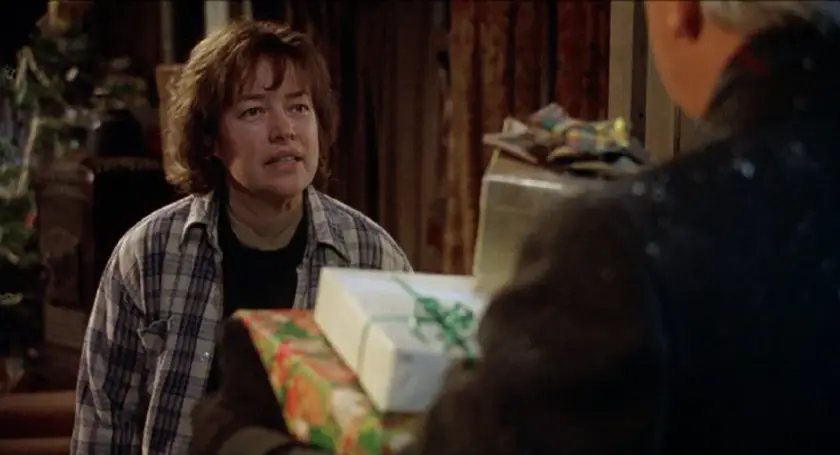
Kathy Bates delivers one of her most underrated performances as Frances Lacey (Bates, Misery), who packs her six children into a station wagon after her abusive husband abandons them. With little money and no clear plan, she drives from Los Angeles to rural Idaho, determined to build a better life. Using savings to buy land with a rundown house, Frances struggles to create stability while working multiple jobs and facing small-town suspicions about single mothers—especially from her eldest son, Shayne (Edward Furlong, Terminator 2: Judgment Day), who resents their constant upheaval. Bates avoids the “saint or sinner” clichés of movie mothers, creating a woman who’s devoted yet flawed, strong yet vulnerable. Her dynamic with Furlong’s angry teen feels raw and real.
Based on screenwriter Patrick Sheane Duncan’s childhood after his father’s death (his family had twelve children, condensed to six for the film), A Home of Our Own could’ve been pure inspiration—but instead it digs deeper. Tony Bill uses Idaho’s rugged setting as both obstacle and eventual refuge, showing how suspicion gradually becomes community. The children, while given a soft Hollywood glow, avoid tipping the film into sentimentality. Released in November 1993, its subtlety kept it from wide commercial success, though it fared better on home video. Still, it remains buried in Bates’s filmography despite its quiet strength. A Home of Our Own succeeds by portraying poverty without pity, focusing on small, everyday decisions that determine whether a family survives—or falls apart.
2. Welcome Home, Roxy Carmichael (1990)
Director: Jim Abrahams
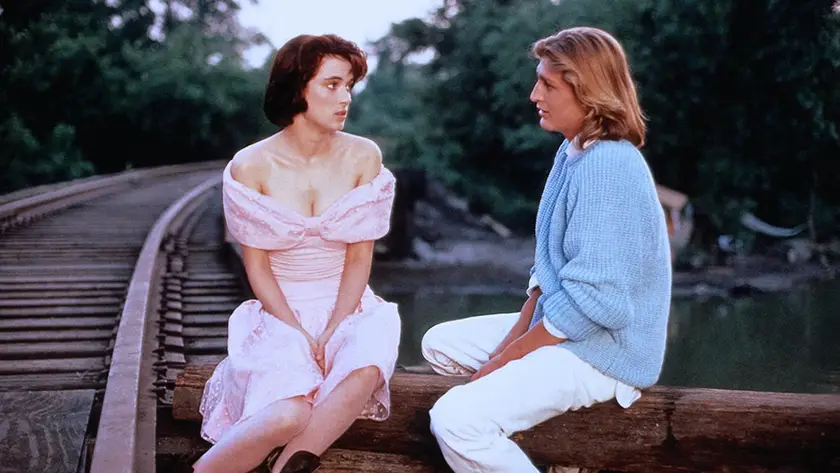
Winona Ryder delivers a sterling performance that captures every contradictory impulse of teenage alienation, playing fifteen-year-old Dinky Bossetti (Ryder, Heathers), who becomes obsessed with local girl-turned-Hollywood celebrity Roxy Carmichael’s impending return, convinced the glamorous star is her birth mother. As the Ohio town prepares for Roxy’s homecoming with increasing fanfare, Dinky’s fantasies intensify, leading to desperate attempts at proving her connection while alienating her adoptive parents (Graham Beckel, L.A. Confidential and Frances Fisher, Titanic) and the few friends who care about her. Ryder’s Dinky is both insufferable in her self-absorption and heartbreaking in her vulnerability—a character who feels authentically adolescent, not movie-made.
The film explores the universal adolescent fantasy of secret specialness while examining the painful reality of feeling like an outsider in your own life. Jeff Daniels (The Squid and the Whale) provides a gentle counterpoint as Roxy’s old boyfriend, trying to love a daughter who won’t let herself be loved. Abrahams—best known for Airplane! and The Naked Gun—directs with surprising restraint and sensitivity. Released during Ryder’s breakout period, Welcome Home, Roxy Carmichael was overshadowed by her higher-profile projects and later became hard to find. It may have slipped under the radar because it refuses to offer the comforting arc of a typical coming-of-age story. Instead, it succeeds by refusing to validate Dinky’s delusions while treating her pain seriously, offering a bittersweet truth: sometimes, growing up means accepting that where you already are might be where you belong.
1. House of Games (1987)
Director: David Mamet
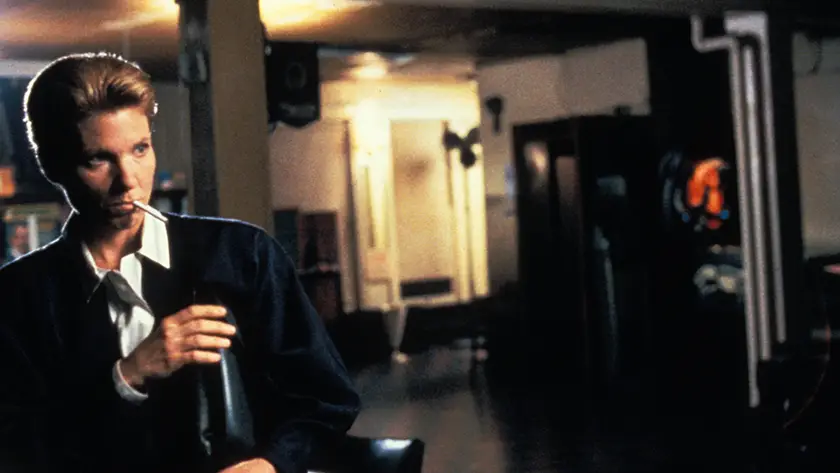
Before David Mamet was a household name, he made his directorial debut with this razor-sharp con game thriller, anchored by Lindsay Crouse’s mesmerizing turn as psychiatrist Margaret Ford (Crouse, The Verdict). Crouse, who was married to Mamet at the time, plays a woman drawn into the orbit of charismatic grifter Mike (Joe Mantegna, The Godfather Part III) while trying to help a patient. Margaret soon finds herself seduced by the thrill of deception and the possibility of reinvention. What begins as detached curiosity becomes a dangerous obsession, as her cool professionalism unravels and Mantegna’s charm keeps both Margaret and the audience perpetually off-balance. He’s a perfect con artist—equally trustworthy and dangerous.
Mamet reframes the genre as a psychological study of identity and control, using his trademark dialogue—precise, rhythmic, deceptively simple—to reveal as much in silence as in speech. The film is built on layers of deception, keeping viewers as uncertain as Margaret about what’s real, and probing how self-deception can be the most powerful con of all. Despite strong reviews, the studio’s hesitation kept it from a wide release, and it became a cult discovery on TV and video. Brilliant, tense, and unnervingly seductive, House of Games endures because it isn’t just about playing the con—it’s about the cost of believing your own illusions.

